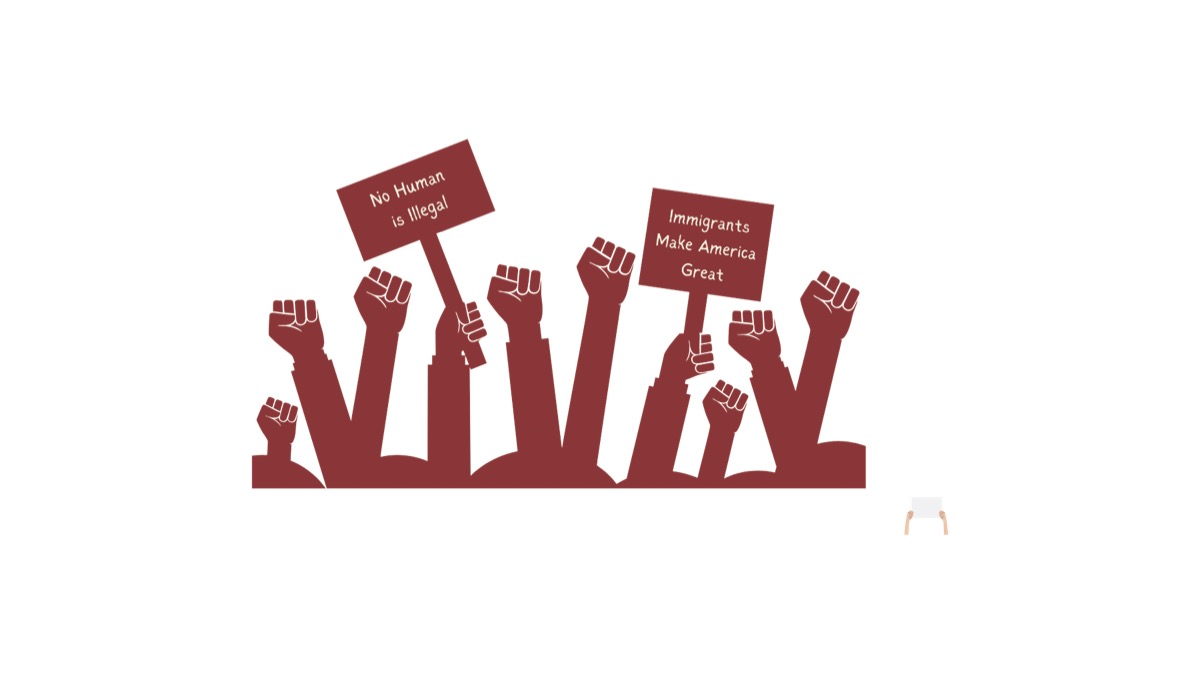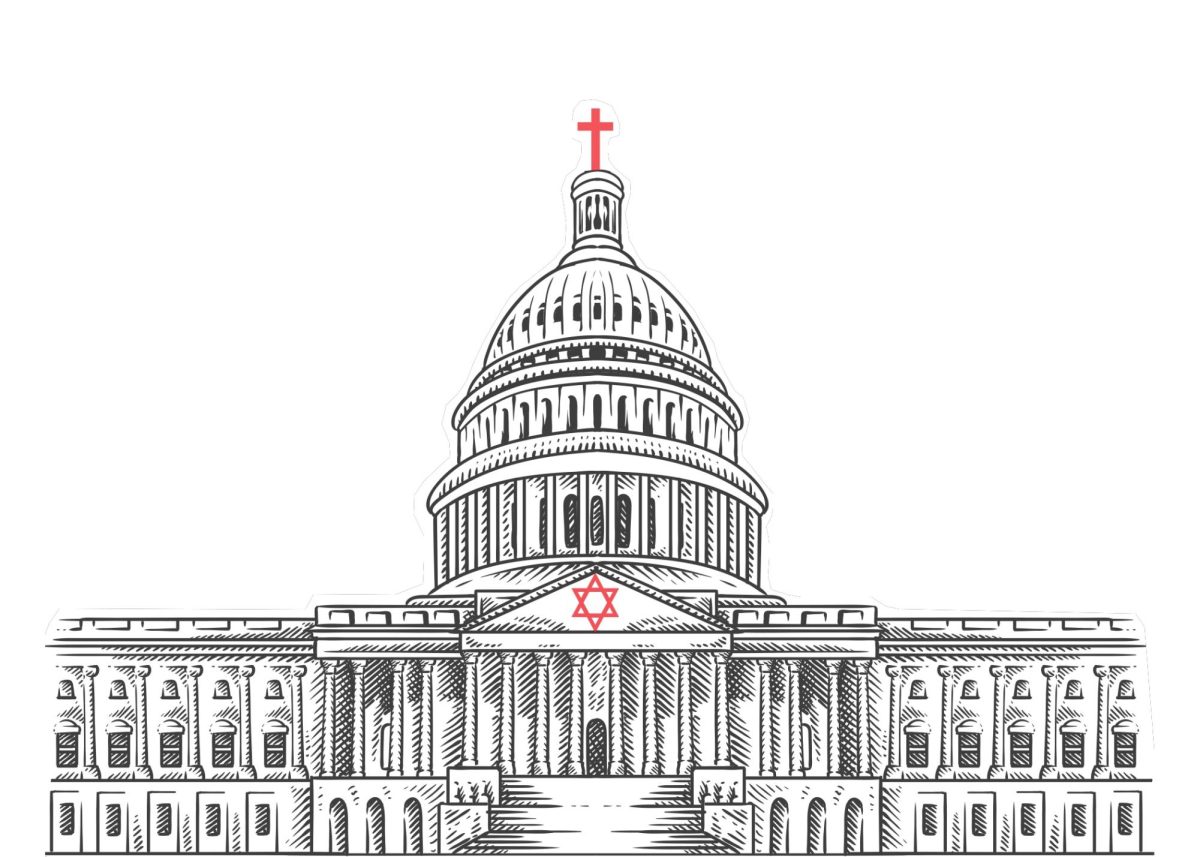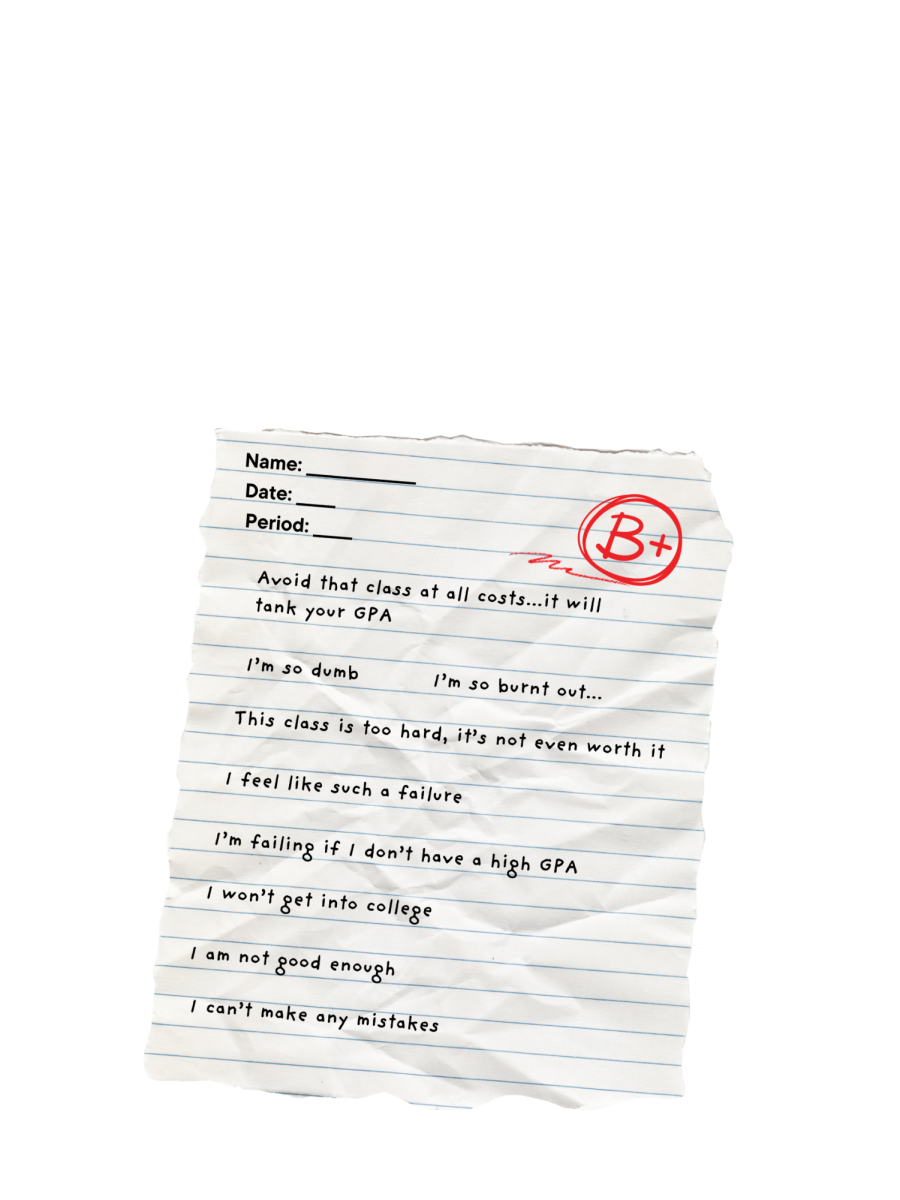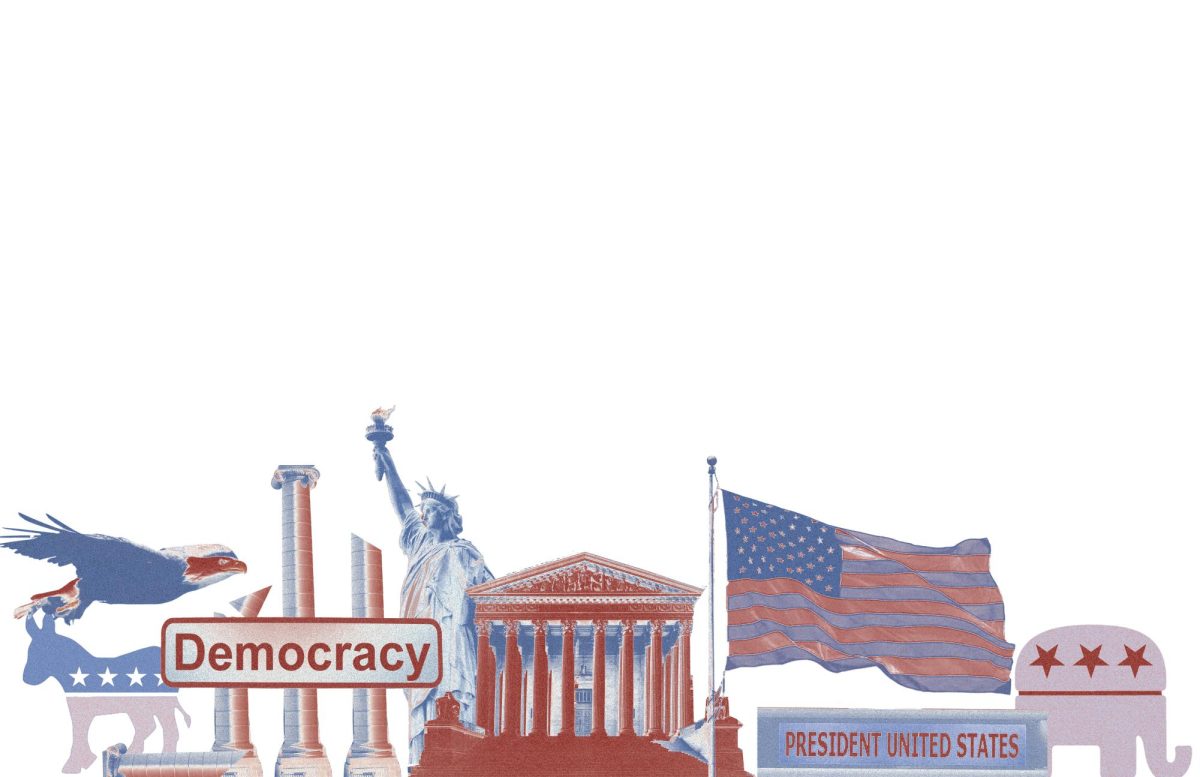The Democratic Party suffered a significant loss to the Republican Party in the recent election cycle, resulting in a Republican majority in the executive, legislative, and arguably judicial branches of government.
“I saw Trump’s win coming. The Democrats started off in a horrible position, Biden wasn’t a strong candidate, and swapping Kamala in so late wasn’t going to save the election,” junior Robie Polos said. “Trump also ran a better campaign and took better advantage of social media to gain popularity.”
In the wake of their loss, many Democratic policies and values are at risk under President Donald Trump, who faces accusations of abusing executive power and threatening American democracy. However, the constitutionality of his actions will ultimately be determined through the courts and the process of judicial review.
“Trump is trying to overwhelm the system with his repeated illegal actions, but they are systematically being evaluated at the state level, and attorneys general across the country are filing lawsuits to protect us,” said Gregg Hart, a California assembly member.
Trump was inaugurated on Jan. 20, and, according to the federal registry, he signed more executive orders in his first 10 days than any president in their first 100 days.
“Most of these executive orders, as you’ve now come to see, are illegal, unconstitutional, and just plain stupid rhetoric,” said Congressman Salud Carbajal.
Trump’s executive orders range from establishing the Department of Governmental Efficiency (DOGE), led by Elon Musk, to renaming the Gulf of Mexico to the Gulf of America. He has also attempted to end birthright citizenship and interfere with Congress’s control over the federal budget.
Federal judges have blocked several of his orders, citing concerns over their constitutionality.
“Despite what he promised on the campaign trail, Donald’s agenda has already proven to be one that will raise your cost of living,” Carbajal said.
During his campaign, Trump pledged to lower the cost of living through tariffs and tax relief, but his tariff policies have been inconsistent. He used tariffs as leverage in immigration negotiations with countries like Canada, Mexico, and Colombia, straining relationships with key trading partners.
Ironically, in his first month as president, Trump deported only 36,660 people—significantly fewer than former President Joe Biden’s average of 57,000 deportations per month, according to U.S. Department of Homeland Security data.
Trump has also enacted a 25% import tax on steel and aluminum and a 10% tariff on all imported goods from China.
“Over 200 executive orders, and not one to address child care, housing, healthcare costs, or groceries—nothing,” Carbajal said.
Some former Trump supporters have expressed regret online, posting videos about feeling betrayed, particularly over job cuts and immigration policies.
While these voices remain a minority among his base, they highlight a shifting perception of Trump’s leadership.
Blue states across the country are taking legal and legislative action to push back against Trump’s policies.
In California, immigrants are protected under laws like the California Values Act, passed just a month after Trump’s election.
“No doubt there’s going to be damage and an impact on our way of life as we know it. We’re all hoping the courts will step in to push back against these illegal and unconstitutional actions,” Carbajal said.
Attorneys general from blue states have filed numerous lawsuits against Trump’s administration.
Fourteen states sued Trump over the power granted to DOGE, arguing it was unconstitutional. In total, Trump has faced over 57 lawsuits challenging his executive orders in his first three weeks in office.
California, however, is not just reacting—it has been preparing for years.
“Since 2017, our California state legislature has been passing laws to ensure that no matter who is in charge of this country, what matters to us will be protected,” said California State Senator Monique Limón.
While state legislation offers some protection, federal law ultimately overrides state law. The courts will play a crucial role in determining whether Trump’s executive actions stand.
“If we see a failure to comply with court rulings, that would be our cue as Americans that we’ve reached the boiling point,” Carbajal said. “That’s when we’ll know we’re heading toward a dictatorship—one the American people will not tolerate.”





























